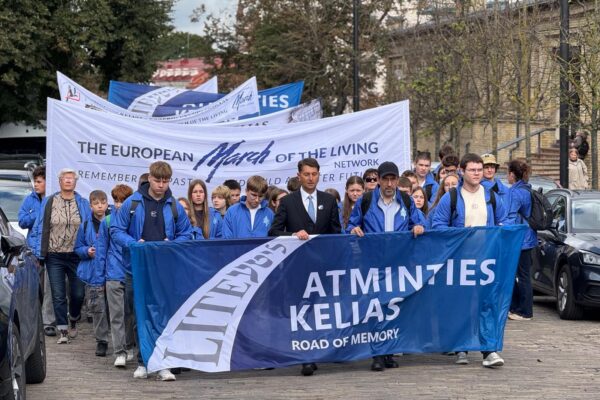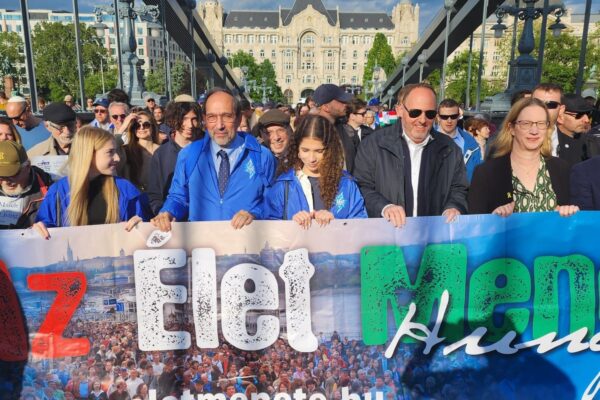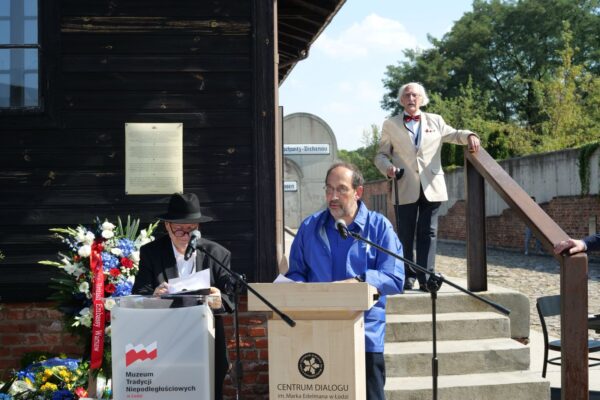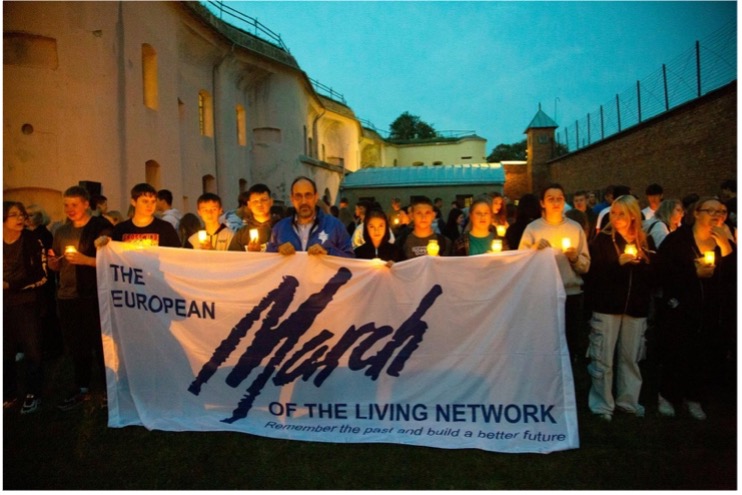
March of the Living in Kaunas (Credit: Ruta Andrs)
March of the Living Marks National Memorial Day for the Genocide of Lithuanian Jews
Prime Minister Ingrida Šimonytė:
“The hatred that destroyed millions of lives in the past is still alive. We cannot allow the shadows of the dark past to return to our daily lives”
VILNIUS, Lithuania – September 24, 2024 – The International March of the Living and the European March of the Living commemorated the National Memorial Day for the Genocide of Lithuanian Jews with two marches, one in Vilnius today (September 24) and another in Kaunas (yesterday September 23). The events were co-organized by the European March of the Living and the International Commission for the Evaluation of the Crimes of the Nazi and Soviet Occupation Regimes in Lithuania.
The commemoration events opened with an official ceremony in Ponary attended by Lithuania Prime Minister Ingrida Simonyte; Seimas Speaker, Viktorija Čmilytė-Nielsen; MP Emanuel Zingeris, Chairman of the International Commission and Michel Gourary, Director of the European March of the Living.

From left to right: Lithuania Prime Minister Ingrida Simonyte; Seimas Speaker, Viktorija Čmilytė-Nielsen; MP Emanuel Zingeris, Chairman of the International Commission and Michel Gourary, Director of the European March of the Living. (Credit: Rurh Andrs)
Prime Minister Ingrida Šimonytė said at the ceremony: “We can’t change the atrocious past, but we must remember it. It’s paramount that we remember it,” she added. “We must tell our children and grandchildren about what happened to make sure that this never happens again.” Addressing the global rise of antisemitism, Šimonytė said: “The hatred that destroyed millions of lives in the past is still alive. This hatred of otherness also strengthens antisemitism in various countries in the world. Promotion of violence and enmity, incitement of national and other hatred is incompatible. Not only with the constitution, not only with the country’s interests, but with basic humanity. We cannot allow the shadows of the dark past to return to our daily lives”.
Prime Minister Šimonytė, who led the march in Lithuania for two consecutive years (2022-2023), walked alongside senior Lithuanian government officials, the Israeli ambassador to Lithuania, Hadas Wittenberg Silverstein, representatives of the local Jewish community, and participants from the International Commission.

March of the Living in Kaunas (Credit: Ruta Andrs)
Last night, for the first time, a memorial ceremony and march were also held in Kaunas, Lithuania’s temporary capital in 1939. The Kaunas march commemorated the Jewish community of the city, which was largely destroyed during the Holocaust. Special recognition was given to the 64 prisoners who, in December 1943, managed to escape from Fort IX after being forced to cover up the atrocities committed by the Nazis and their local collaborators.
Today, the March of the Living is retracing the path from the site of the Vilnius Jewish Ghetto to the mass graves in Ponary, where over 70,000 Jews were murdered during the Holocaust. This annual commemoration, now in its tenth year, marks the liquidation of the Vilnius Ghetto on September 23-24, 1943, and honors the victims of the Nazi regime and its Lithuanian collaborators.
Prior to the Holocaust, Lithuanian Jewry numbered over 200,000 across approximately 200 communities, with around 70,000 living in Vilnius and 32,000 in Kaunas, where the two main ghettos were established. The mass shootings in Lithuania, often referred to as the “Holocaust by Bullets,” saw the near-total destruction of these communities as the Nazis, with local assistance, executed tens of thousands of Jews and buried them in mass graves.
HELP US KEEP THE MEMORY OF THE HOLOCAUST ALIVE
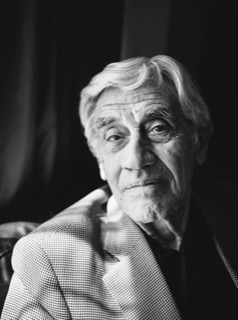
Holocaust survivor Elly Gotz (Credit: Laina Brown)
During the marches, a special message was shared from 96-year-old Holocaust survivor Elly Gotz, who now lives in Toronto, Canada. Gotz, born in Kaunas in 1928, was just 13 years old when the Nazis occupied Lithuania in 1941. He survived both the Kaunas Ghetto and the Dachau concentration camp.
“My Lithuanian fellow citizens, I honor you, the new generation, for wishing to commemorate the Ponary Genocide. I imagine marching with you to Ponary, thinking of my family among the 9,200 Jews murdered at Fort IX in Kaunas on October 29, 1941. Let us pray for a better future and for peace,” Gotz said in the message.
For full version of Elly Gotz message click here.
Michel Gourary, Director of the European March of the Living, said: “As we see antisemitism rising across Europe, it is vital to fight against hate through education and commemoration. The International March of the Living leads Holocaust education efforts by organizing local marches that honor the victims. The Ponary Massacre remains one of the most horrific examples of mass murder during the Holocaust, and we remain committed to remembering the 70,000 Jews buried in Ponary and throughout Lithuania, as well as those lost in concentration and death camps.”
Today, in the quiet woods of Ponary near Vilnius, Lithuania, the landscape carries an eerie stillness. Beneath the forest floor lies a grim history that is essential to recall, particularly as Lithuania marks its National Memorial Day for the Genocide of Lithuanian Jews. This annual march from the former Vilnius ghetto to the mass grave in Ponary is a poignant reminder of the horrors inflicted on Lithuania’s Jewish population during the Holocaust, a massacre that claimed the lives of 70,000 Jews between 1941 and 1944. The Ponary massacre is a testament not only to the efficiency of Nazi brutality but also to the collaboration and complicity of local populations.
